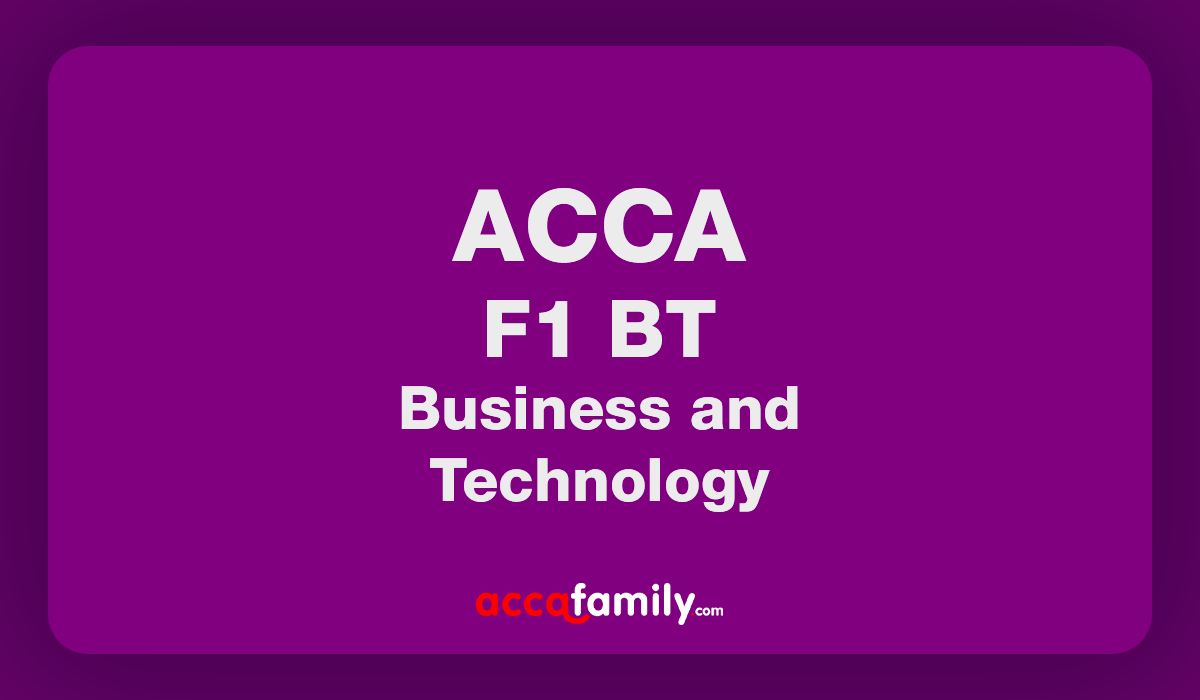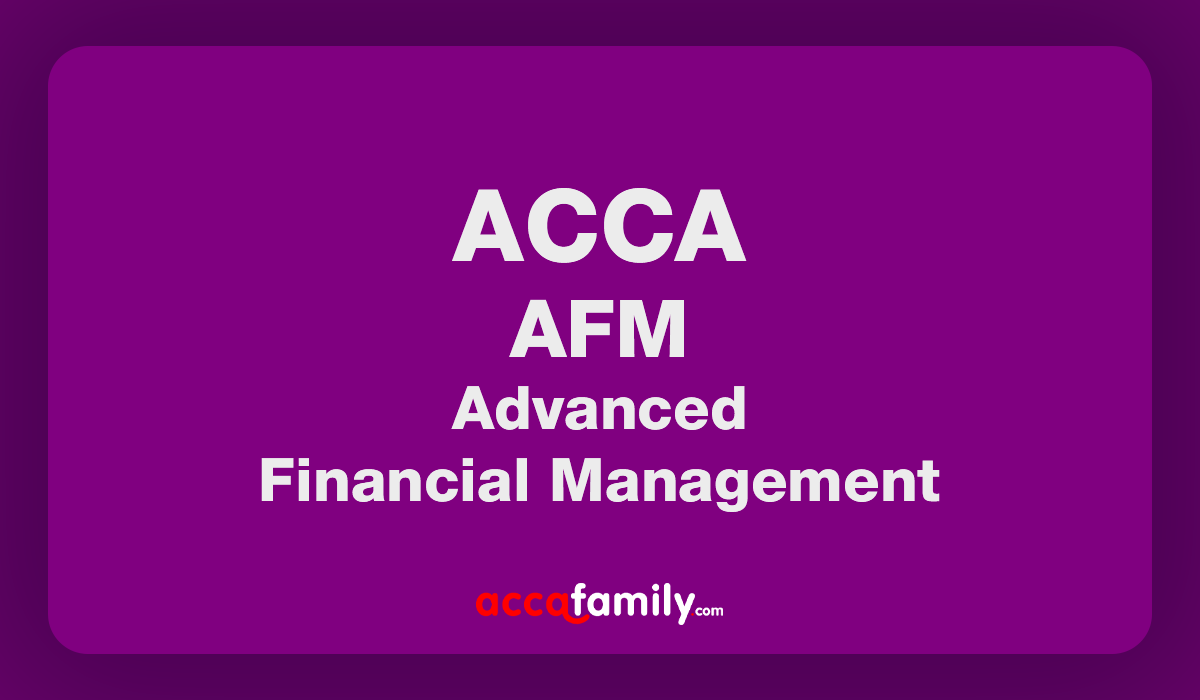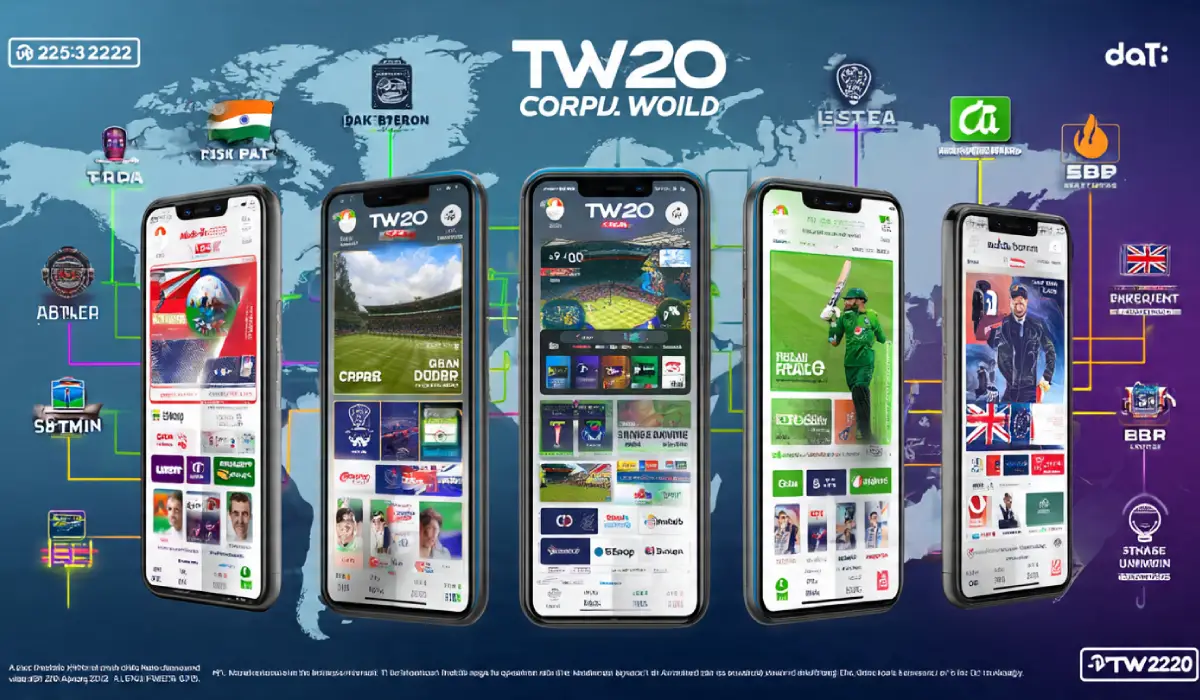Are you seeking comprehensive study materials and resources to excel in your ACCA F1 (BT) Business and Technology examination? The F1 (BT) Business and Technology Workbook Kaplan Guide serves as your essential companion for mastering the fundamental concepts of business operations, organizational structures, and technological applications in modern enterprises.
This guide provides you with structured learning materials, practice questions, and strategic insights to help you navigate through the complexities of the ACCA F1 syllabus. Whether you’re a first-time candidate or looking to improve your previous performance, understanding how to effectively utilize quality study resources can significantly impact your success rate.
Table of Contents
| Section | Topic |
|---|---|
| 1 | What is F1 (BT) Business and Technology Module |
| 2 | Difficulty Level and Pass Requirements |
| 3 | Why Choose Kaplan Study Materials |
| 4 | Benefits of PDF Workbook Format |
| 5 | Strategic Study Planning |
| 6 | Effective Preparation Techniques |
| 7 | Last-Minute Revision Guide |
| 8 | Key Success Factors |
| 9 | Common Challenges and Solutions |
| 10 | Practice and Assessment Methods |
| 11 | Key Takeaways |
| 12 | FAQ Section |
What is F1 (BT) Business and Technology Module of ACCA
The F1 (BT) Business and Technology module forms the foundation of your ACCA qualification journey. This paper focuses on developing your understanding of business operations, organizational behavior, and the role of technology in contemporary business environments.
The syllabus covers essential areas including business organization structures, corporate governance principles, accounting systems, internal controls, and the impact of digital transformation on business processes. You’ll explore how organizations function, make decisions, and adapt to changing market conditions while maintaining ethical standards and regulatory compliance.
Core Learning Areas
The F1 curriculum encompasses several critical domains:
Organizational Context: Understanding different business forms, stakeholder relationships, and organizational structures that shape modern enterprises.
Business Functions: Examining how various departments work together, including finance, marketing, operations, and human resources.
Technology Integration: Analyzing how digital systems, data analytics, and emerging technologies transform business operations and decision-making processes.
Governance and Ethics: Exploring corporate responsibility, ethical frameworks, and regulatory requirements that guide business conduct.
How Difficult to Study and Pass F1 (BT) Business and Technology
The F1 (BT) Business and Technology examination presents moderate difficulty levels for most candidates. Your success depends largely on your approach to studying and your familiarity with business concepts.
Assessment Format and Requirements
The examination consists of 70 objective test questions that you must complete within 100 minutes. This computer-based assessment requires you to demonstrate knowledge across all syllabus areas through multiple-choice questions, scenario-based problems, and analytical tasks.
To pass, you need to achieve a minimum score of 50%. The pass rates typically range between 65-75%, indicating that with proper preparation, most candidates can successfully complete this module.
Key Challenges
Time Management: The examination format requires quick decision-making and efficient question navigation.
Breadth of Coverage: The syllabus spans multiple business disciplines, requiring comprehensive understanding rather than deep specialization.
Practical Application: Questions often present real-world scenarios requiring you to apply theoretical knowledge to practical situations.
Why Choose Kaplan Study Materials
Kaplan stands as one of the most trusted names in ACCA education, offering comprehensive study materials that align perfectly with examination requirements. Their approach combines theoretical understanding with practical application, ensuring you develop both knowledge and skills needed for success.
Kaplan’s Competitive Advantages
Structured Learning Path: Kaplan materials follow a logical progression that builds your understanding systematically from basic concepts to advanced applications.
Quality Assurance: All content undergoes rigorous review processes to ensure accuracy, relevance, and alignment with current ACCA standards.
Student Support: Access to expert tutors, online resources, and peer communities enhances your learning experience.
Track Record: Thousands of successful ACCA candidates have relied on Kaplan materials to achieve their professional goals.
Content Quality and Relevance
Kaplan’s study materials reflect current business practices and regulatory requirements. The content incorporates recent developments in technology, governance standards, and business methodologies, ensuring your knowledge remains current and applicable.
Benefits of PDF Workbook Format
The PDF workbook format offers significant advantages for modern learners who value flexibility and accessibility in their study approach.
Accessibility and Convenience
Portable Learning: You can access your study materials anywhere, anytime, using various devices including laptops, tablets, and smartphones.
Search Functionality: Digital formats allow quick keyword searches, helping you locate specific topics or concepts efficiently.
Annotation Capabilities: Most PDF readers support highlighting, note-taking, and bookmarking features that enhance your study experience.
Cost-Effectiveness
PDF workbooks typically cost less than printed materials while offering the same comprehensive content. This format eliminates printing and shipping costs, making quality education more accessible to students worldwide.
Environmental Considerations
Digital materials support sustainable learning practices by reducing paper consumption and environmental impact associated with traditional textbook production and distribution.
Strategic Study Planning for F1 (BT)
Effective preparation for the F1 (BT) Business and Technology examination requires a well-structured study plan that balances content coverage with skill development.
Time Allocation Framework
Foundation Phase (4-6 weeks): Focus on understanding core concepts, business terminology, and fundamental principles across all syllabus areas.
Application Phase (3-4 weeks): Practice applying knowledge through case studies, scenario analysis, and problem-solving exercises.
Consolidation Phase (2-3 weeks): Review weak areas, complete practice tests, and refine examination techniques.
Weekly Study Structure
Dedicate 15-20 hours per week to your F1 preparation, distributing time across different learning activities:
- 40% Reading and content absorption
- 35% Practice questions and exercises
- 15% Review and revision
- 10% Mock examinations and performance analysis
How to Effectively Prepare for the ACCA F1 (BT) Exam
Your preparation strategy should integrate multiple learning approaches to maximize retention and understanding.
Active Learning Techniques
Conceptual Mapping: Create visual representations of how different business concepts relate to each other, helping you understand systemic relationships.
Case Study Analysis: Regularly practice analyzing business scenarios to develop critical thinking skills required for scenario-based questions.
Peer Discussion: Engage with fellow students to discuss complex topics, share insights, and clarify doubts through collaborative learning.
Knowledge Retention Strategies
Spaced Repetition: Review previously studied material at increasing intervals to strengthen long-term memory retention.
Application Practice: Regularly solve practice questions that mirror actual examination format and difficulty levels.
Summary Creation: Develop concise summaries of key topics that you can review quickly during final preparation phases.
Technology Integration in Learning
Leverage digital tools and platforms to enhance your study experience:
Online Practice Platforms: Use ACCA-approved question banks and simulation software to familiarize yourself with examination interfaces.
Mobile Learning Apps: Utilize smartphone applications for quick reviews during commutes or break times.
Virtual Study Groups: Participate in online forums and study groups to access diverse perspectives and support networks.
Last-Minute Revision Guide for F1 (BT)
The final weeks before your examination require focused revision strategies that consolidate your knowledge and build confidence.
Priority Areas for Final Review
High-Weightage Topics: Concentrate on syllabus areas that carry higher examination weightings, including organizational structures, governance principles, and technology applications.
Weak Areas: Identify and address knowledge gaps through targeted study sessions and additional practice questions.
Recent Updates: Review any recent changes to accounting standards, regulations, or business practices that may appear in current examinations.
Examination Day Preparation
Practice Time Management: Complete several full-length practice tests under timed conditions to develop pace and rhythm.
Review Common Mistakes: Analyze errors from previous practice sessions to avoid repeating similar mistakes during the actual examination.
Prepare Essential Materials: Organize all required documentation, identification, and technical requirements well before examination day.
Key Success Factors for F1 (BT) Achievement
Several critical factors significantly influence your likelihood of success in the F1 (BT) Business and Technology examination.
Consistent Study Habits
Regular Schedule: Maintain consistent daily study routines rather than intensive cramming sessions that may lead to information overload.
Progress Tracking: Monitor your advancement through regular assessments and adjust study plans based on performance feedback.
Balanced Approach: Allocate appropriate time to all syllabus areas rather than focusing exclusively on preferred topics.
Practical Application Skills
Real-World Connections: Relate theoretical concepts to current business events and organizational practices to deepen understanding.
Problem-Solving Development: Practice analytical thinking through diverse business scenarios and case studies.
Communication Skills: Develop clear, concise expression of business concepts and analytical conclusions.
Common Challenges and Solutions
Understanding typical obstacles faced by F1 candidates helps you prepare more effectively and avoid common pitfalls.
Content Volume Management
Challenge: The broad syllabus coverage can feel overwhelming for new candidates.
Solution: Break down the curriculum into manageable segments and focus on one area at a time while maintaining overall progression.
Technical Terminology
Challenge: Business and technology terminology may be unfamiliar to candidates without prior business education.
Solution: Create a personal glossary of key terms and concepts, reviewing regularly to build vocabulary confidence.
Application vs. Memorization
Challenge: Balancing factual knowledge with practical application skills.
Solution: Practice scenario-based questions regularly to develop analytical thinking alongside content memorization.
Practice and Assessment Methods
Effective preparation requires diverse assessment approaches that mirror actual examination conditions while providing learning opportunities.
Question Types and Strategies
Multiple Choice Questions: Develop elimination techniques and logical reasoning skills to identify correct answers efficiently.
Scenario-Based Problems: Practice analyzing business situations and applying appropriate theoretical frameworks to reach conclusions.
Calculation-Based Questions: Master basic business mathematics and financial analysis techniques required for quantitative problems.
Performance Monitoring
Regular Testing: Complete practice assessments weekly to track progress and identify areas needing additional attention.
Detailed Analysis: Review both correct and incorrect answers to understand reasoning patterns and improve decision-making processes.
Benchmark Comparison: Compare your performance with established pass rates and scoring benchmarks to gauge readiness levels.
Key Takeaways
- The F1 (BT) Business and Technology Workbook Kaplan Guide provides comprehensive preparation materials for ACCA candidates
- Success requires consistent study habits, practical application skills, and effective time management
- Kaplan materials offer structured learning paths with quality content and student support systems
- PDF workbook formats provide flexibility, cost-effectiveness, and accessibility for modern learners
- Strategic planning and regular practice significantly improve your chances of examination success
- Understanding business concepts in practical contexts enhances both learning retention and application skills
Frequently Asked Questions
Q: How long should I study for the F1 (BT) examination? A: Most candidates require 10-15 weeks of consistent preparation, dedicating 15-20 hours per week to achieve optimal results.
Q: Are Kaplan materials sufficient for F1 preparation? A: Yes, Kaplan workbooks provide comprehensive coverage of all syllabus areas, though supplementing with additional practice questions can enhance preparation.
Q: What is the pass rate for F1 (BT) Business and Technology? A: Pass rates typically range between 65-75%, indicating that most well-prepared candidates successfully complete this module.
Q: Can I use digital materials exclusively for F1 preparation? A: Absolutely. PDF workbooks and online resources provide all necessary content and practice materials for successful examination preparation.
Q: How important is practical business experience for F1 success? A: While helpful, practical experience is not essential. The examination focuses on fundamental concepts that can be mastered through dedicated study and practice.
Q: What topics carry the highest weighting in F1 examinations? A: Organizational structures, governance principles, and technology applications typically receive higher emphasis in examination questions.
Q: How should I approach scenario-based questions? A: Read scenarios carefully, identify key issues, apply relevant theoretical frameworks, and provide structured responses that demonstrate analytical thinking.
Q: Are there any prerequisites for taking the F1 examination? A: No specific prerequisites exist, though basic business knowledge and strong English language skills facilitate better understanding and performance.
Conclusion
The F1 (BT) Business and Technology Workbook Kaplan Guide represents an essential resource for ACCA candidates seeking comprehensive preparation materials and strategic guidance. Success in this foundational module depends on your commitment to consistent study practices, effective utilization of quality materials, and development of practical application skills.
By following the structured approach outlined in this guide, leveraging Kaplan’s proven educational resources, and maintaining focus on both theoretical understanding and practical application, you position yourself for success in the F1 (BT) Business and Technology examination. Remember that this module serves as your foundation for advanced ACCA studies, making thorough preparation an investment in your entire professional qualification journey.
Your dedication to mastering these fundamental business and technology concepts will serve you well throughout your ACCA qualification and future career in accounting and finance.
(adsbygoogle = window.adsbygoogle || []).push({}); (adsbygoogle = window.adsbygoogle || []).push({});












